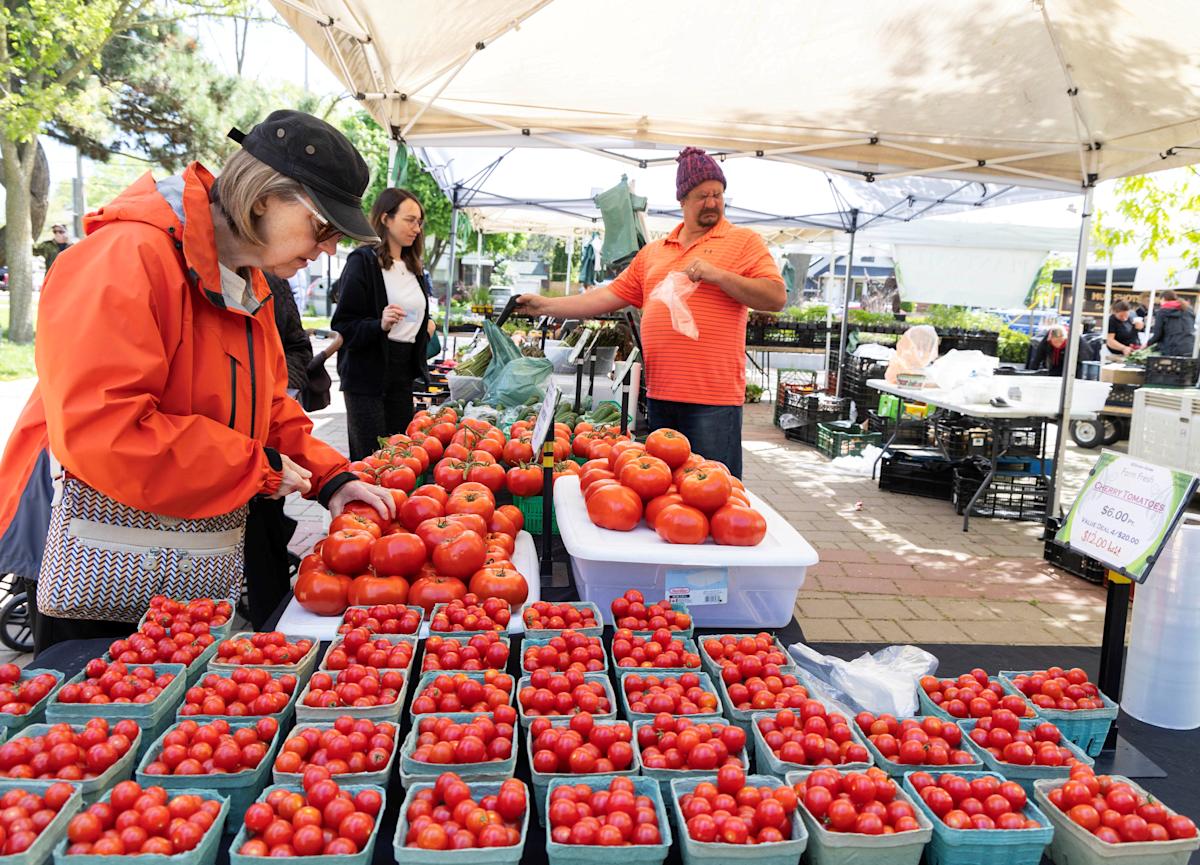The August inflation data come one day before the Bank of Canada’s September interest rate announcement. (Photo by Zou Zheng/Xinhua via Getty Images) · Xinhua News Agency via Getty Images
Canada’s annual inflation rate rose to 1.9 per cent in August, picking up from 1.7 per cent in July, as gasoline prices fell less sharply and food costs continued to climb, according to Statistics Canada data published Tuesday. The reading came in just shy of the two per cent increase economists had expected, reinforcing a broad but not universal view that the Bank of Canada (BoC) will cut interest rates on Wednesday.
Among most economists, the question now is not whether the BoC will cut Wednesday, but how many further cuts are in store.
Gas prices were lower than a year ago due to the removal of the consumer carbon tax, but the price drop was smaller in August than in previous months. The Consumer Price Index (CPI) excluding gasoline rose 2.4 per cent from last year, down from 2.5 per cent in each of May, June and July.
“In August 2024, [gas] prices declined 2.6 per cent month over month, as concerns about slower economic growth began to emerge,” Statistics Canada’s report says. “In August 2025, prices rose 1.4 per cent on a monthly basis due in part to higher refining margins, offsetting lower crude oil costs.”
On a monthly basis, CPI decreased 0.1 per cent in August. Seasonally adjusted, CPI rose 0.2 per cent.
Desjardins Group economist Royce Mendes said the August CPI data showed inflation was “well-contained” and wrote that a 25-basis-point cut was “the obvious course of action” for the BoC. CIBC economist Andrew Grantham called the data “largely unthreatening.”
Most other banks held similar views. RBC, which has long argued that the BoC’s cutting cycle is over, remains an outlier, although economist Abbey Xu allowed that the Wednesday decision will be “a close call” between a cut and a hold.
BMO and TD also expect a cut Wednesday. In a note to clients, TD economist Andrew Hencic pointed to “signs of waning momentum” in the economy, with unemployment rising. TD also expects another cut sometime in 2025, Hencic said.
Core measures of inflation, to which the BoC pays particular attention, were steady. CPI-median held at 3.1 per cent, while CPI-trim fell to 3.0 per cent from 3.1 per cent. The core numbers carve out more volatile items for a clearer view of underlying price pressures.
“With core measures of inflation likely to cool further in the months ahead thanks to the slack building up in the economy and the removal of many retaliatory tariffs on September 1st, we not only expect a 25-basis-point cut tomorrow but also a further reduction at the October meeting,” Grantham wrote.
Story Continues
Inflationary pressures have been quite muted, with the impact of retaliatory tariffs fading.Desjardins Group economist Royce Mendes
BMO chief economist Douglas Porter was more reserved, noting that gas prices are likely to jump in next month’s report and “will juice headline inflation well above” 2.0 per cent. Further cuts are possible, Porter said, but “we suspect the Bank will continue to take it one step at a time” because of the higher core inflation trend, “as well as the likelihood that headline inflation will pop, at last temporarily, in next month’s report.”
Desjardins’ Mendes argued that “dovish” language from the BoC Wednesday could bring the market in line with Desjardins’s call for further cuts to bring the overnight rate to 2.0 per cent.
“As we’ve been saying, inflationary pressures have been quite muted, with the impact of retaliatory tariffs fading,” Mendes said. “Now that most counter-tariffs have been eliminated, price increases in tariff-exposed categories should normalize quickly, with some even seeing price declines in the months to come.”
Some of those declines may already be materializing, with the CEO of Sobey’s parent Empire recently saying inflation at the grocer was “way below” national CPI last quarter.
Food prices increased 3.4 per cent compared with a year earlier. Meat prices rose 7.2 per cent, including a 12.7 per cent gain for fresh or frozen beef. Processed meats also rose 5.3 per cent. Prices for fresh fruit moved in the opposite direction, falling 1.1 per cent annually after rising 3.9 per cent in July, driven mainly by declines for grapes, other fruit and berries.
Prices for cellular services fell more slowly than in previous months, down 1.2 per cent year over year after a 6.6 per cent drop in July. On a monthly basis, however, they rose 1.5 per cent as providers pulled back on back-to-school promotions.
Travel services also weighed on headline inflation, with package tours down 9.3 per cent annually and air transportation 7.6 per cent cheaper than last August.
Rent costs increased 4.5 per cent on the year, while mortgage interest rose 4.2 per cent and passenger vehicle purchases four per cent.
Regionally, prices rose at a faster pace in eight provinces, with Quebec posting a 2.7 per cent annual increase and Nova Scotia 2.2 per cent.
In July, CPI fell to 1.7 per cent year-over-year, driven largely by lower gasoline prices.
This story will be updated.
John MacFarlane is a senior reporter at Yahoo Finance Canada. Follow him on X @jmacf.
Download the Yahoo Finance app, available for Apple and Android.

